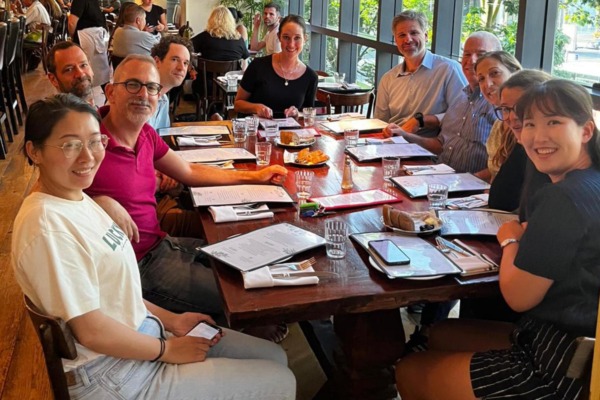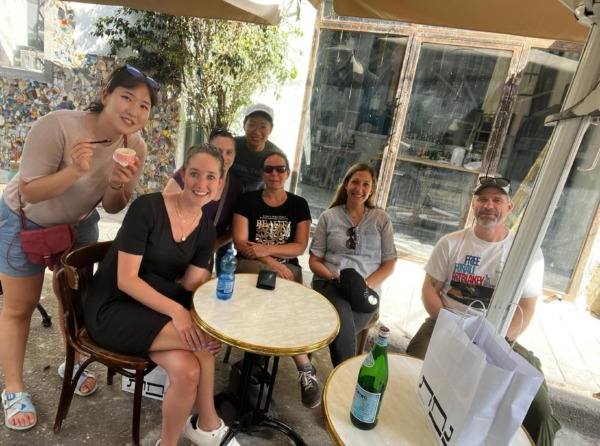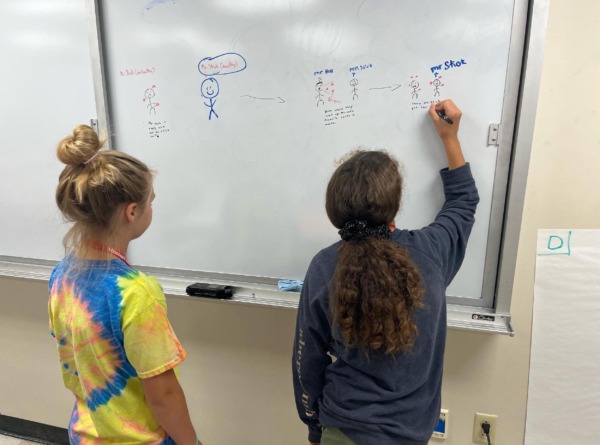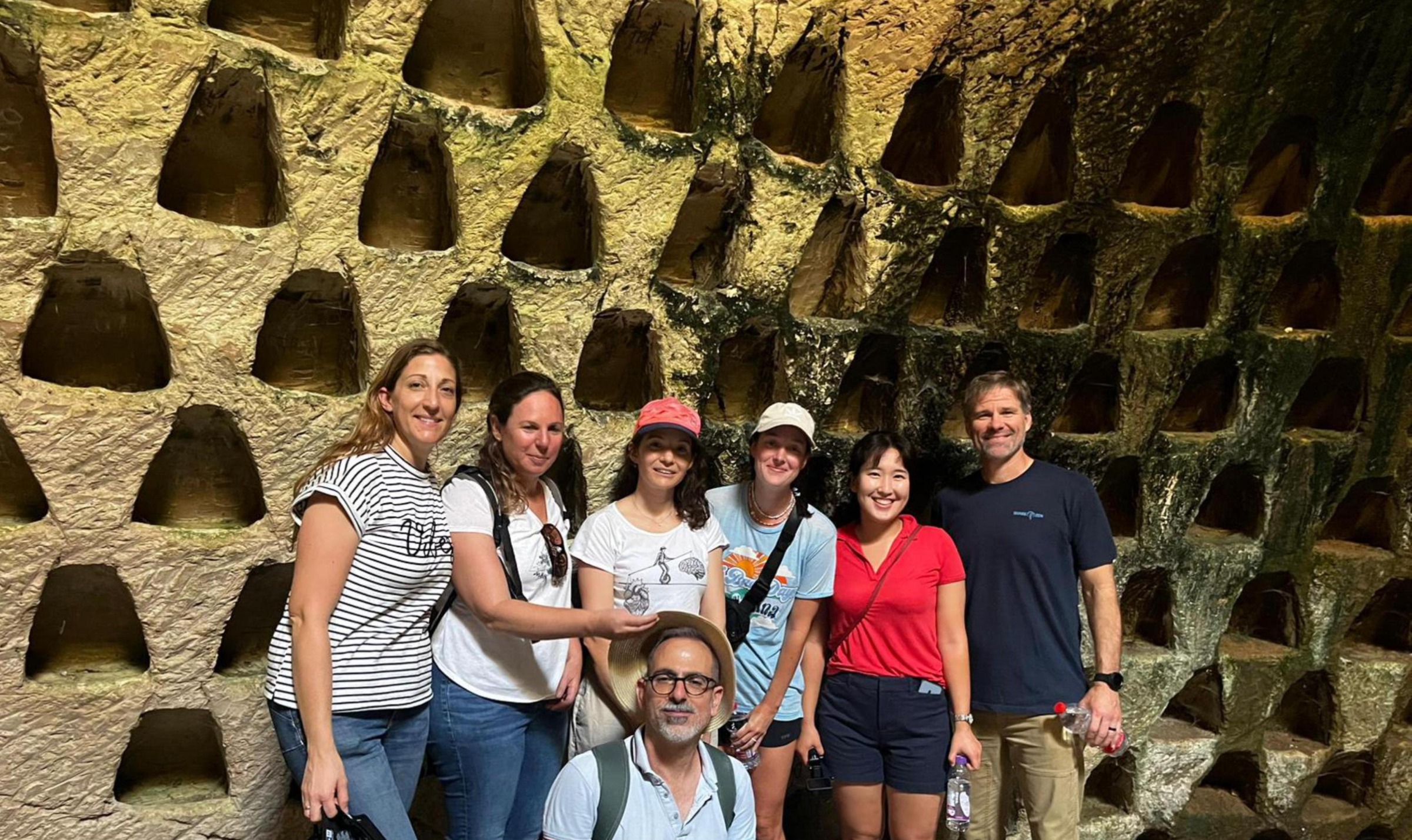With the beginning of the 2023-2024 academic year, many UNC School of Education undergraduates are returning to campus with summer experiences that will serve them inside the classroom and in their work to better the world through education. The same can be said of the School’s faculty members and the postdoctoral researchers and graduate students who work with them.
This summer, Troy Sadler, Ph.D., a leading science education scholar whose work seeks to help middle and high schoolers negotiate complex socio-scientific issues inside the classroom, and doctoral students spent time in Israel and Missouri to advance collaborative research efforts that aim to equip middle school science learners with knowledge and tools that will help them become active and informed citizens.
For a week in early July, Sadler; Nannan Fan and Rebecca Lesnefsky, doctoral students in the Culture, Curriculum, and Teacher Education concentration; and Heewoo Lee, a doctoral student in the Learning Sciences and Psychological Studies concentration; traveled to the Weizmann Institute of Science, a national research institute in Rehovot, Israel, and met with a team of researchers led by David Fortus, Ph.D.
Sadler serves as principal investigator and Fortus serves as co-principal investigator on a $2 million National Science Foundation-funded (NSF) grant that aims to restructure middle school science education around grand challenges — worldwide societal issues such as pandemics, climate events, and diminishing biodiversity that affect people’s lives and can impact future generations. The UNC team’s trip was made possible by a grant from the Carter Chapman Shreve Family Foundation through the Weizmann Institute.
While in Israel, Sadler and Fortus’s teams worked to develop classroom units that anchor science education around these grand challenges, which hopefully can motivate student learning and provide a meaningful context for science curriculum and assessment. Through that work, Sadler and his doctoral student forged stronger relationships with their Israeli colleagues and learned about the country’s culture, history, and education systems to bring new insights to their approaches to science education.

“Working in Israel allowed our team to more deeply understand the contextual differences among science classrooms in vastly different geographic places,” said Sadler, Thomas James Distinguished Professor of Experiential Learning. “And at the same time, we discovered commonalities in the needs of teachers and students we are trying to support in both North Carolina and Israel.”
For doctoral student Rebecca Lesnefsky, in addition to seeing ancient structures in Jerusalem and experiencing city life in Tel Aviv, the highlight of the trip — her first time conducting research abroad — was seeing first-hand the value of international collaboration.
“Being able to work face-to-face with our Israeli partners was an invaluable experience,” Lesnefsky said. “We had the opportunity to do a deep dive into the curriculum we’ve been developing and move that project forward. We were able to strengthen our working relationships and make truly meaningful friendships.”
Stateside, at Missouri University of Science and Technology Rolla, Mo., Sadler; Zhen Xu, Ph.D., a postdoctoral scholar; and two doctoral students in the School’s Learning Sciences and Psychological Studies concentration — Jamie Elsner and Eric Kirk — along with colleagues from the University of Missouri, led a 3-day camp for 19 middle school-aged children.

The camp, called “Viral Detectives,” provided activities to help attendees understand how they can use science to understand infectious disease, how to slow the spread of disease, and how to protect ourselves and our communities.
The camp was made possible by an NSF grant — $1.9 million over four years — and explores how learners make sense of complex issues like pandemics through the use of different kinds of models, representations, and simulations.
For doctoral student Jamie Elsner, the camp served as a reminder of the power of science education and inspired her to continue this kind of work.
“Helping students make connections between the science they were learning about viruses and their personal experiences with the COVID-19 pandemic was incredibly fulfilling as a doctoral researcher,” Elsner said. “The campers were very excited to show off their models to siblings and parents during gallery-style poster presentations on the last day. It was great to see them communicate their knowledge about disease spread and prevention, which they can take back home with them and inform others in their local communities.”

Sadler and his team plan to analyze the data gathered from the camp to gain insights into how students comprehend scientific models and representations related to societal issues that are significant to them and their communities.
“We know that models and representations can be critical tools to support learning about science ideas,” Sadler said. “Our team is trying to advance what we know about how to help kids use different kinds of models for making sense of some of our most challenging issues like climate change and pandemics. Ultimately, what we learn in this work will be used to improve materials and experiences in science classrooms.”
